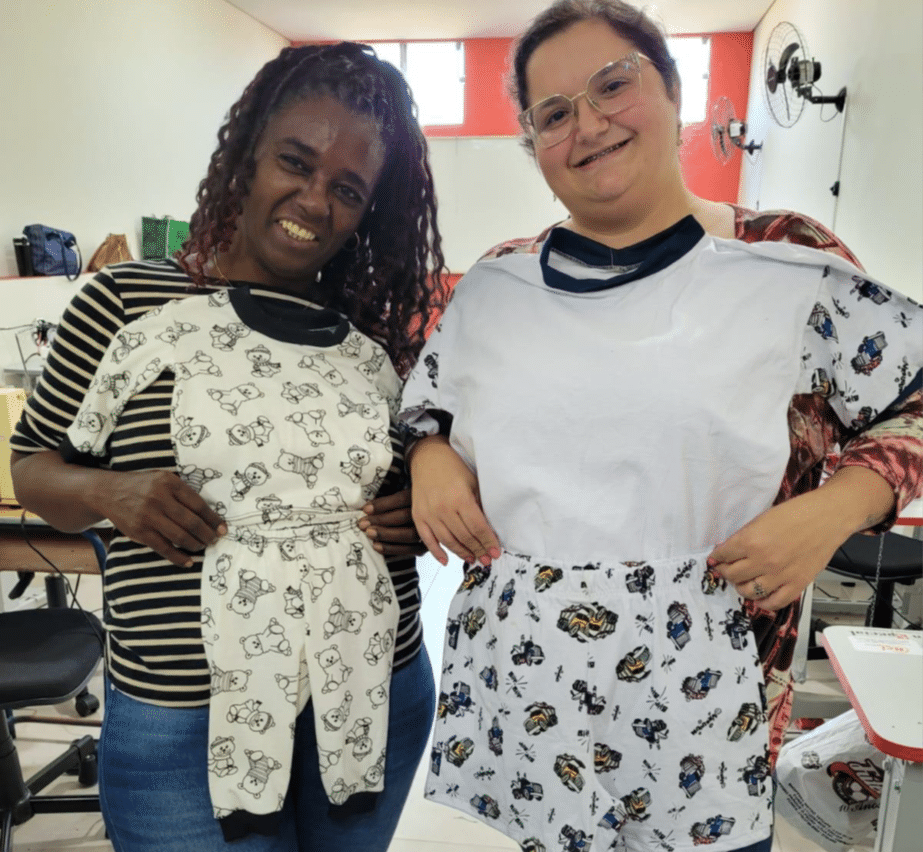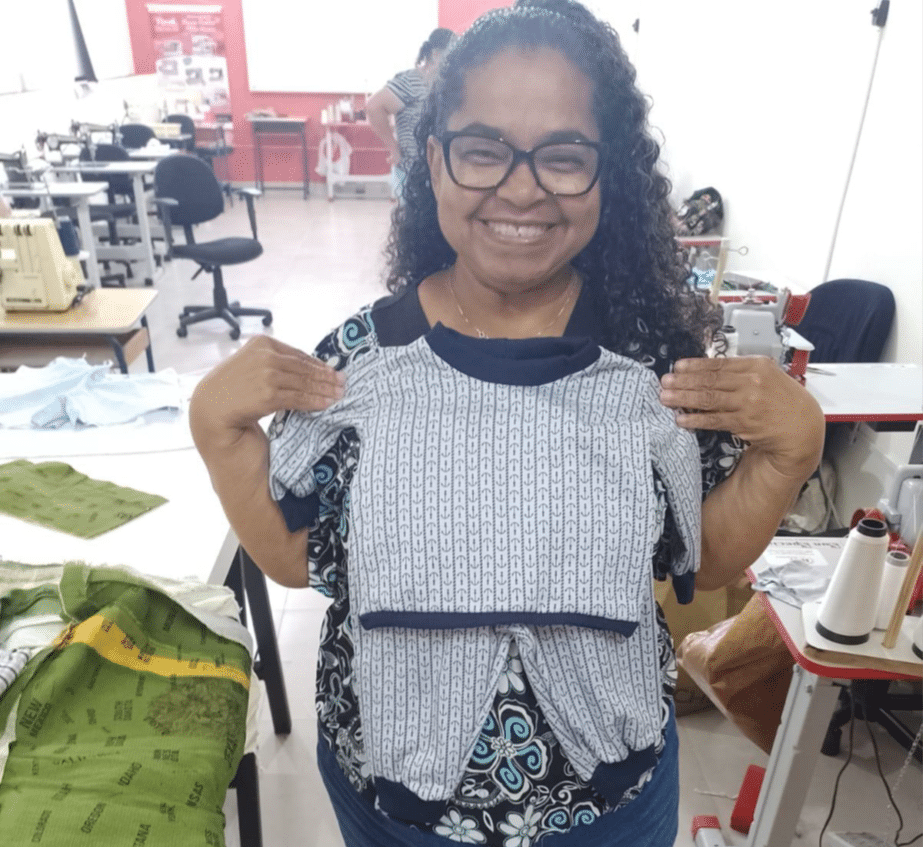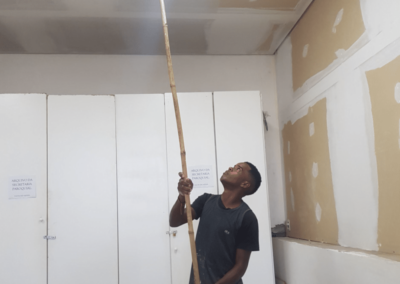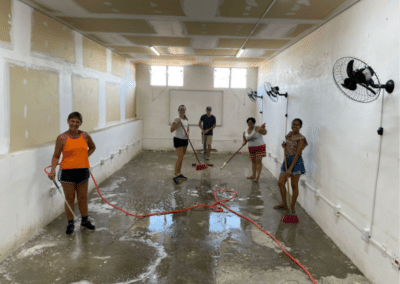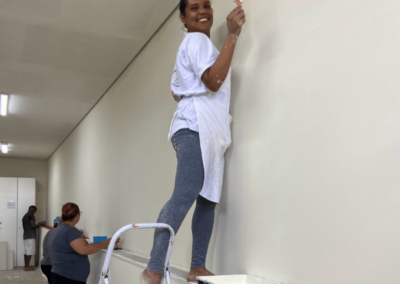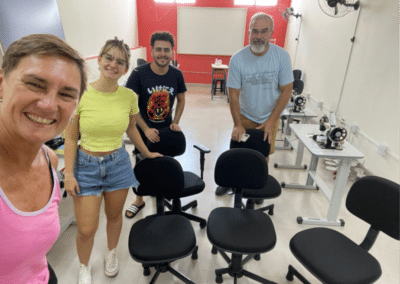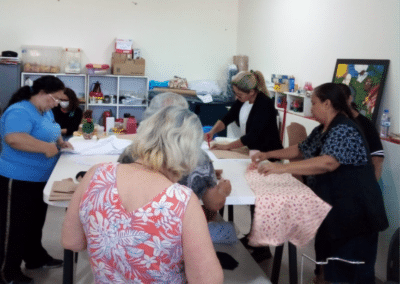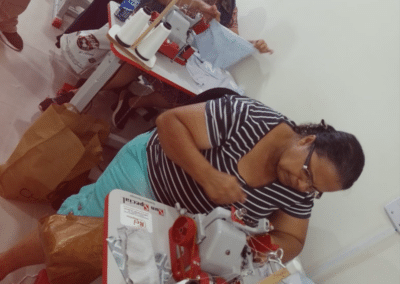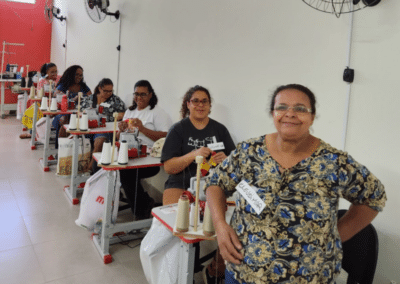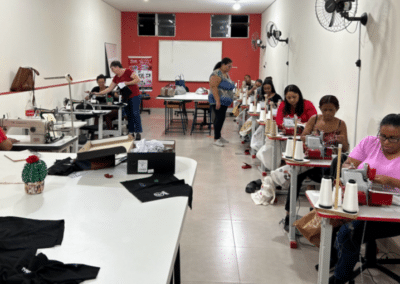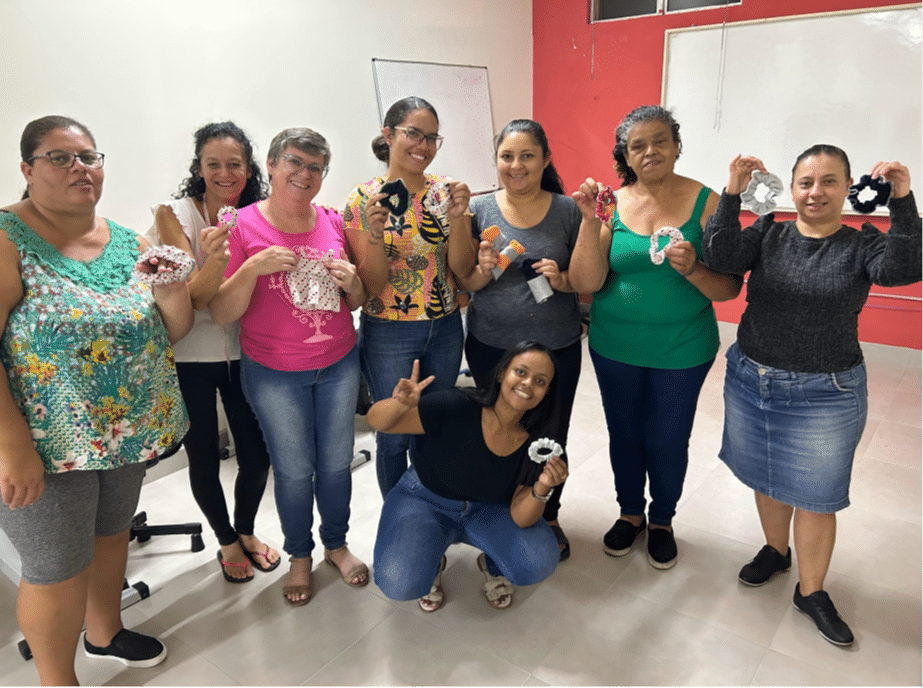
Empowering vulnerable communities with sustainable livelihoods using art and entrepreneurship.
COLETIVO SABER EM ARTE (“Collective Knowledge in Art”) is a community non-profit located in Sao Paulo, Brazil.
This organization works hard to help a rural community in Campinas city, in the northwest region of Sao Paulo. This community, located in a cluster of neighborhoods called Amarais, has high levels of social vulnerability, including significant unemployment, violence as a result of poverty, and houses built without adequate structure or sanitation.
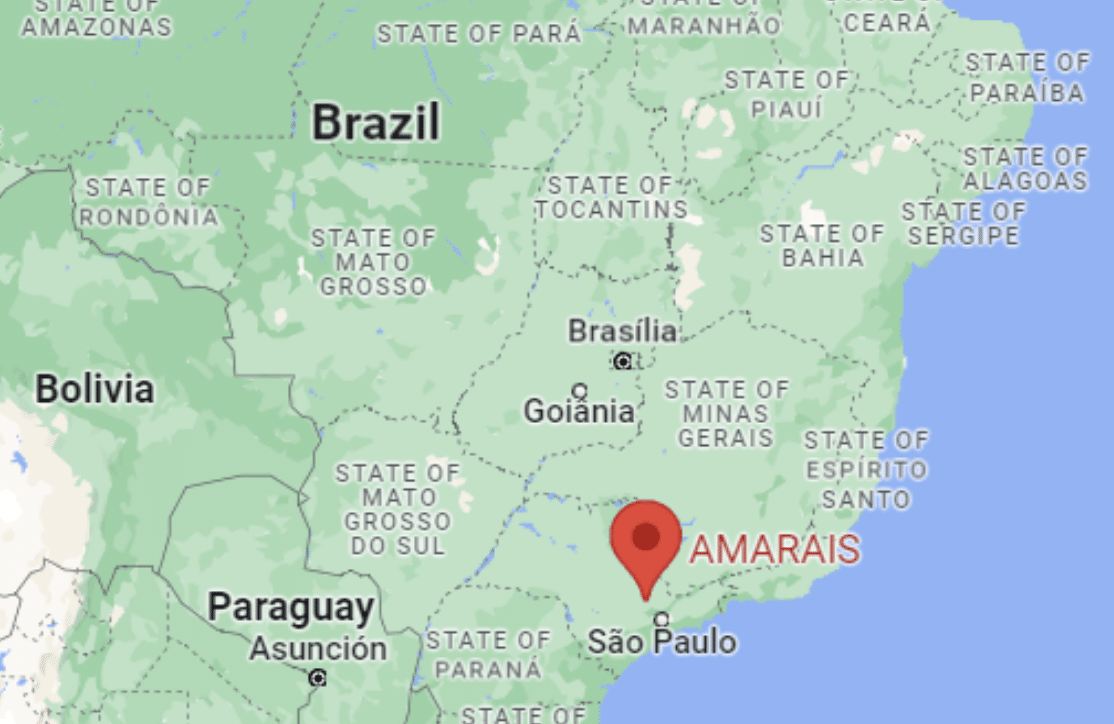
The COLECTIVO provides support, training and incentives to promote the livelihoods of the Amarais community through art and entrepreneurship. The COLECTIVO believes that empowering the women with entrepreneurship skills will reduce this region’s economic and social vulnerability, which has been exacerbated by the pandemic.
The COLETIVO was formed by passionate community leaders and involves numerous local partnerships. Together they developed public programs that meet the integral rights of the community they aim to develop.
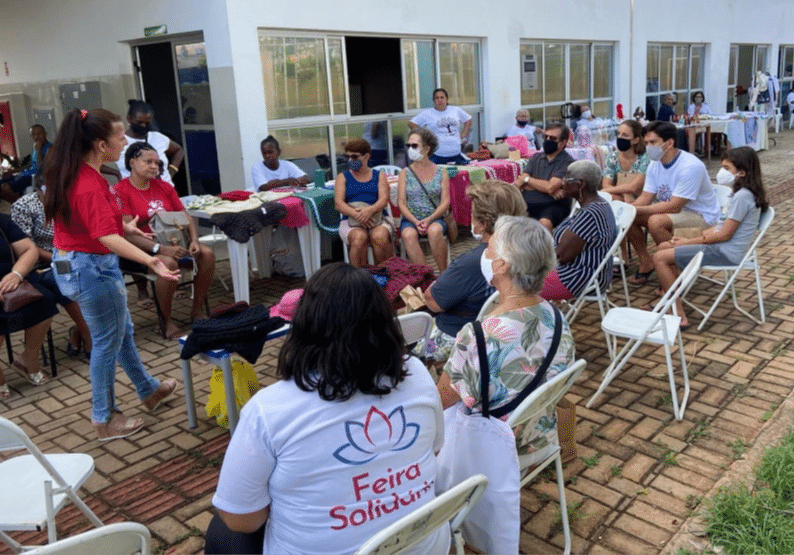
Core activities in COLETIVO’s program:
1. The Solidarity Fair
The Solidary Fair, located in Amarais, gives local entrepreneurs an opportunity to sell their artisanal products to the public. The fair has 50 registered entrepreneurs, and is supported by the Department of Culture because of its wide popularity throughout the community. Many local partners see the fair as a vibrant expression of Amarais culture, and as supportive of the residents’ wellbeing.
The COLETIVO has plans to expand this fair to the outer regions to reach a larger, more diverse market with a higher spendable income to increase the sales potential of the women entrepreneurs. The COLETIVO also has a goal to increase investment in the women’s entrepreneurship training, so they can learn through experience at the fairs and sharpen their business savviness.
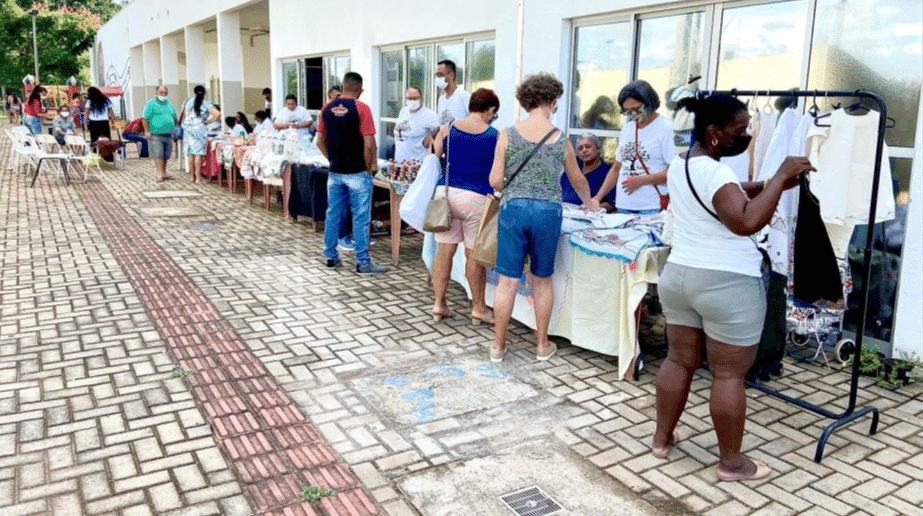
2. Sewing Course
The COLETIVO designed a sewing course that trains women with concrete skills, while fostering enthusiasm for financial independence and leadership. By the end of the course, the women will have created and completed a product that they can sell in the market. They will also receive lessons in entrepreneurship such as pricing, advertising, customer service and ethics.
This course was created in partnership with the Housing Department. The Housing Department made donations to get the class started, including 13 sewing machines, furniture and supplies, and instructor pay for the first classes.
The COLECTIVO was in need of additional funds to develop and execute the course. This is where Mitra Path came in.
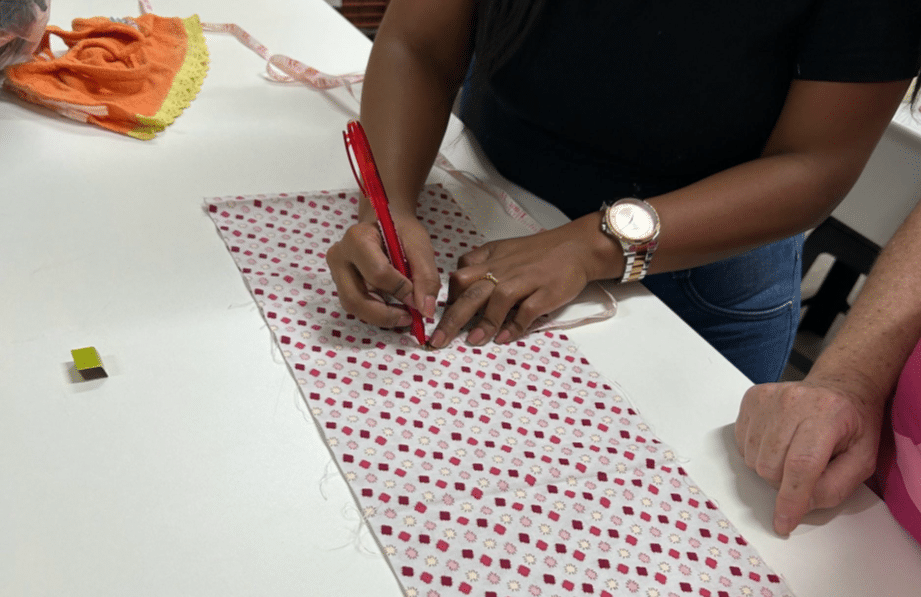
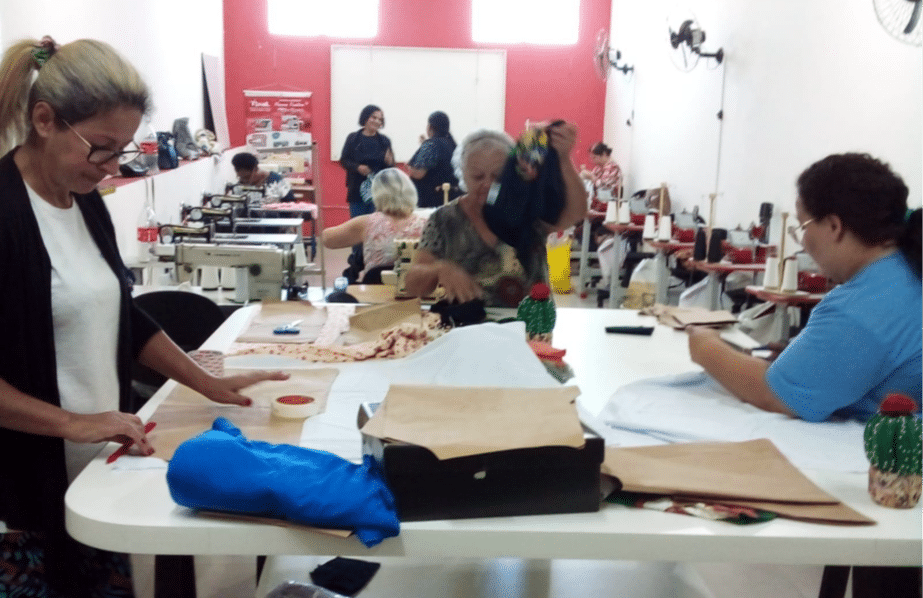
“We are deeply grateful for Mitra Path’s support in making this dream-project of ours come true. Because of Mitra’s support we are giving 40 women the opportunity to learn new skills, become more confident, to make part of a network of reliable and welcoming relationships, and to truly believe that they can start generating an income and improving their lives and their families.”
– COLETIVO SABER EM
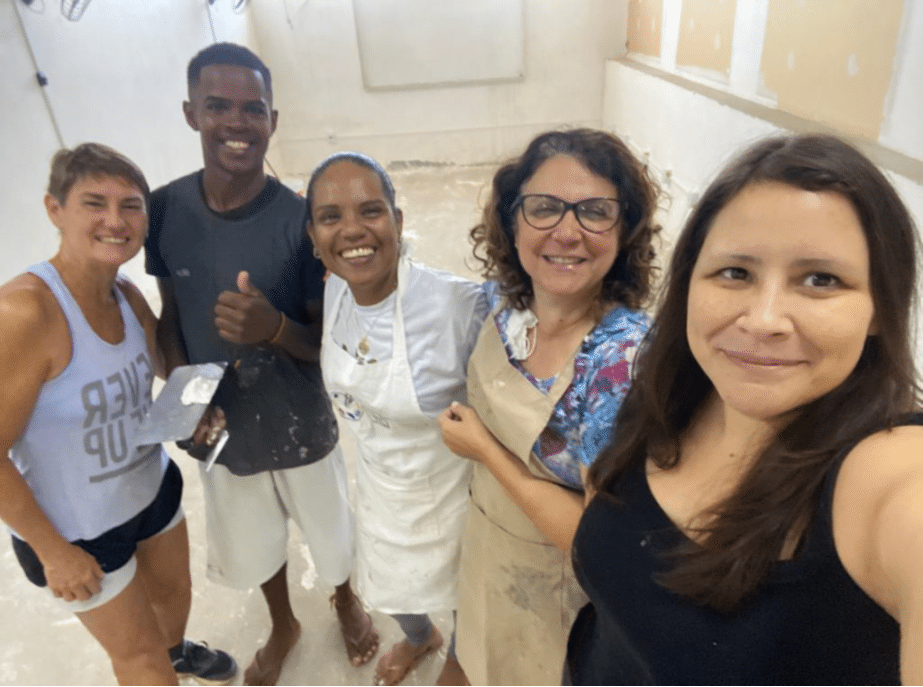
Mitra Path’s Support
Mitra Path’s funding allowed the COLETIVO to develop a personalized program for the entrepreneurs. This included:
- Development and implementation of each entrepreneur’s business plan
- Additional support for their business by offering a small initial amount of “seed funding”
- Mentoring for each entrepreneur
- Ensure continuity of new groups for the sewing course by providing instructor pay
Partnership Goals
The goal of Mitra Path’s funding was to increase the generative income of local entrepreneurs who participate in COLECTIVO’s training courses.
COLETIVO initially planned a course for 15 students, but they received so many applications that the course was expanded to 40 students. Once the students complete the sewing courses, they will take entrepreneurship classes. 15 promising candidates will then receive seed funding to start their business.
